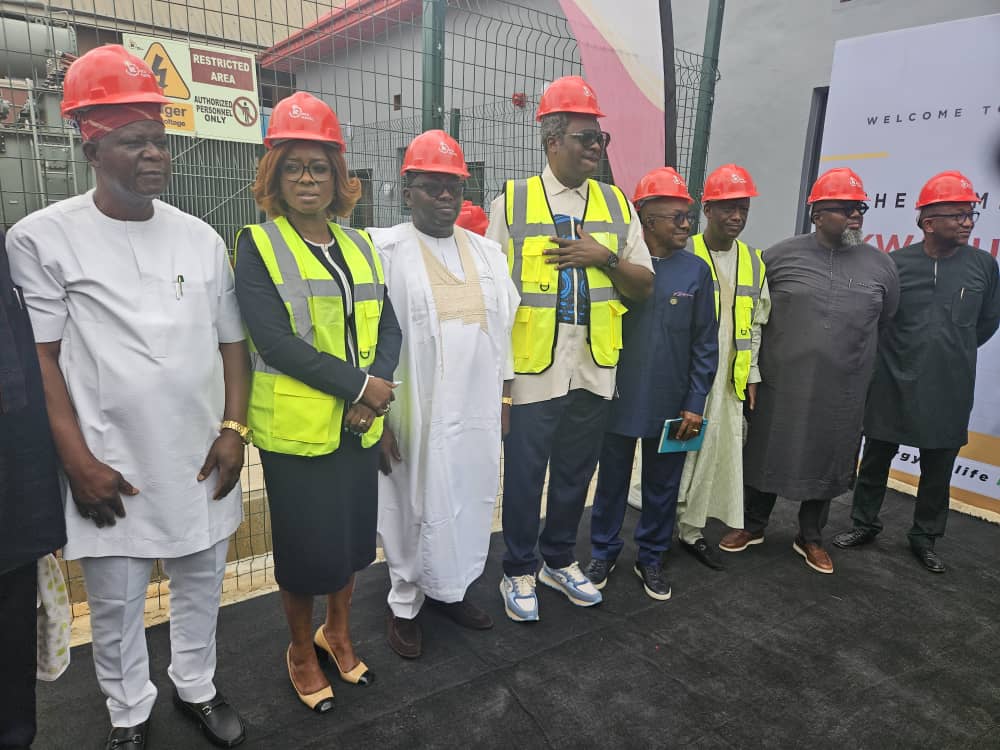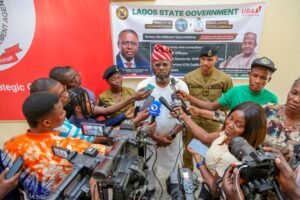Adelabu commissions Lagos injection substation, promises uninterrupted electricity before end of govt

Rotimi Favour
The Minister of Power, Adebayo Adelabu has reemphasised President Bola Ahmed Tinubu’s commitment to deliver uninterrupted electricity to Nigerians before the end of his government.
Adelabu reassured Nigerians of the promise on Saturday, while commissioning the Kwaru 1X15 MVA 33/11KV Injection Substation in the Ikotun-Egbe suburb of Lagos.
He emphasised that Mr President is determined to ensure that citizens enjoy full and uninterrupted electricity supply before he leaves office.
According to him, “the President has continued to implement measures aimed at improving power generation, transmission, and distribution across the country. One of the projects is the Kwaru 1X15 MVA 33/11KV Injection Substation being commissioned today at Ikotun-Egbe suburb of Lagos.”
He said the President recognises that energy is not merely a commodity; it is the backbone of economic growth and job creation. The believe has influenced his commitment to achieving this vision within the lifetime of his administration which is focused on Renewed Hope Agenda.
The Minister further explained that “to ensure the growth and sustainability of the sector, the Federal Government of Nigeria continues to implement a multi-pronged approach, which has yielded some remarkable achievements.”
Beyond improving electricity supply to communities such as Abaranje, Isijola, Igando Road, Omoboriowo, Okerube, and surrounding areas, Adelabu emphasized that the project would have far-reaching benefits for Lagos State’s economy. “This initiative will reduce operational challenges caused by power shortages, provide direct support to small and medium-sized enterprises (SMEs), stimulate economic growth, and create new job opportunities,” he said.
The Minister highlighted key achievements under the Renewed Hope Agenda, including “the decentralization and liberalization of the power sector through the Electricity Act 2023, which has activated twelve state electricity markets and led to the development of a National Integrated Electricity Policy after 24 years.” He also noted, “the attraction of over $2 billion in fresh investments to expand electricity access,” as well as “the transition towards full commercialization, which increased the sector’s revenue by 70 percent in 2024.”
Other milestones, according to Adelabu, include “an increase in Nigeria’s installed generation capacity from 13GW to 14GW, with an all-time peak of 5,801.44 MW and a maximum daily energy record of 128,370.75 MWh on March 4, 2025.” He also mentioned, “the stabilization of the national grid through the Siemens Project, adding over 700 MW of transmission capacity,” and “the successful mobilization of ₦700 billion from FAAC for the Presidential Metering Initiative, alongside a $500 million World Bank DISREP fund, which will add 3.45 million meters to the sector.”
However, Adelabu acknowledged ongoing challenges, particularly in distribution, where “loss levels exceed regulatory limits, market remittances fall short, and customer complaints about service disruptions persist. Under my leadership, the Federal Ministry of Power remains fully committed to working with Distribution Companies (DisCos) to address these issues and ensure energy security nationwide,” he assured.
The Minister commended Ikeja Electric for completing the substation project within 12 months, praising their “diligence, proper planning, stakeholder engagement, and technical expertise. Ikeja Electric is one of the top-performing DisCos in Nigeria. We recognize their efforts and urge even greater strides in expanding access and improving service quality,” he said. “The Federal Ministry of Power remains committed to supporting initiatives that enhance energy reliability and affordability for all customers”, he said.







